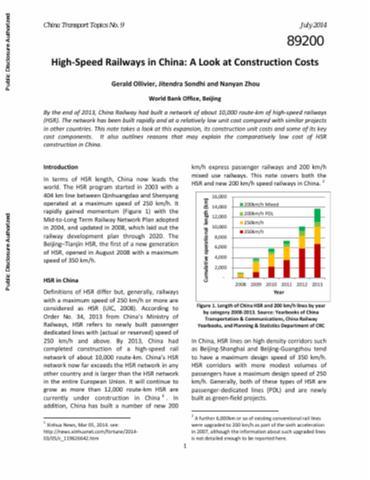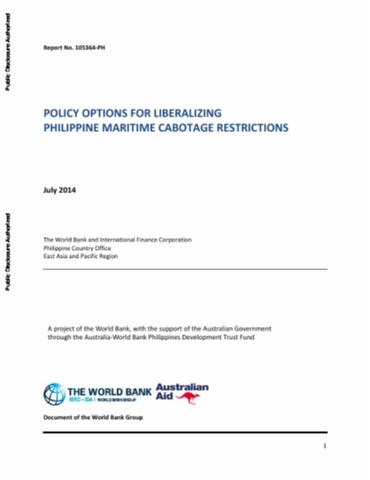The World Bank is a vital source of financial and technical assistance to developing countries around the world. We are not a bank in the ordinary sense but a unique partnership to reduce poverty and support development. The World Bank Group has two ambitious goals: End extreme poverty within a generation and boost shared prosperity.
- To end extreme poverty, the Bank's goal is to decrease the percentage of people living on less than $1.25 a day to no more than 3% by 2030.
- To promote shared prosperity, the goal is to promote income growth of the bottom 40% of the population in each country.
The World Bank Group comprises five institutions managed by their member countries.
The World Bank Group and Land: Working to protect the rights of existing land users and to help secure benefits for smallholder farmers
The World Bank (IBRD and IDA) interacts primarily with governments to increase agricultural productivity, strengthen land tenure policies and improve land governance. More than 90% of the World Bank’s agriculture portfolio focuses on the productivity and access to markets by small holder farmers. Ten percent of our projects focus on the governance of land tenure.
Similarly, investments by the International Finance Corporation (IFC), the World Bank Group’s private sector arm, including those in larger scale enterprises, overwhelmingly support smallholder farmers through improved access to finance, inputs and markets, and as direct suppliers. IFC invests in environmentally and socially sustainable private enterprises in all parts of the value chain (inputs such as irrigation and fertilizers, primary production, processing, transport and storage, traders, and risk management facilities including weather/crop insurance, warehouse financing, etc
For more information, visit the World Bank Group and land and food security (https://www.worldbank.org/en/topic/agriculture/brief/land-and-food-security1
Resources
Displaying 1466 - 1470 of 4907Land Rental Markets as an Alternative to Government Reallocation? Equity and Efficiency Considerations in the Chinese Land Tenure system
The authors develop a model of land
leasing with agents characterized by unobserved
heterogeneity in ability and presence of an off-farm labor
market. In this case, decentralized land rental may
contribute to equity and efficiency goals and may have
several advantages over administrative reallocation. The
extent to which this is true empirically is explored using
data from three of China's poorest provinces. The
Namibia Country Opinion Survey Report (July 2013 - June 2014)
The Country Opinion Survey for FY2013 in Namibia assists the World Bank Group (WBG) in gaining a better understanding of how stakeholders in Namibia perceive the WBG.
Land Allocation in Vietnam's Agrarian Transition
While liberalizing key factor markets is
a crucial step in the transition from a socialist
control-economy to a market economy, the process can be
stalled by imperfect information, high transaction costs,
and covert resistance from entrenched interests. The authors
study land-market adjustment in the wake of Vietnam's
reforms aiming to establish a free market in land-use rights
following de-collectivization. Inefficiencies in the initial
High-Speed Railways in China
By the end of 2013, China railway had built a network of about 10,000 route-km of high-speed railways (HSR). The network has been built rapidly and at a relatively low unit cost compared with similar projects in other countries. This note takes a look at this expansion, its construction unit costs and some of its key cost components. It also outlines reasons that may explain the comparatively low cost of HSR construction in China.
Policy Options for Liberalizing Philippine Maritime Cabotage Restrictions
The purpose of this policy note is to present reform options on cabotage liberalization. The goal of cabotage liberalization is to help i) foster more competition in the domestic shipping industry, ii) reduce shipping cost, and iii) improve efficiency, maritime services, and safety standards. These, together with complementary reforms in domestic shipping and ports, can help enhance consumer and producer welfare through lower consumer prices, higher household real income, timely delivery of goods, and ultimately, job creation and poverty reduction through greater market access.








